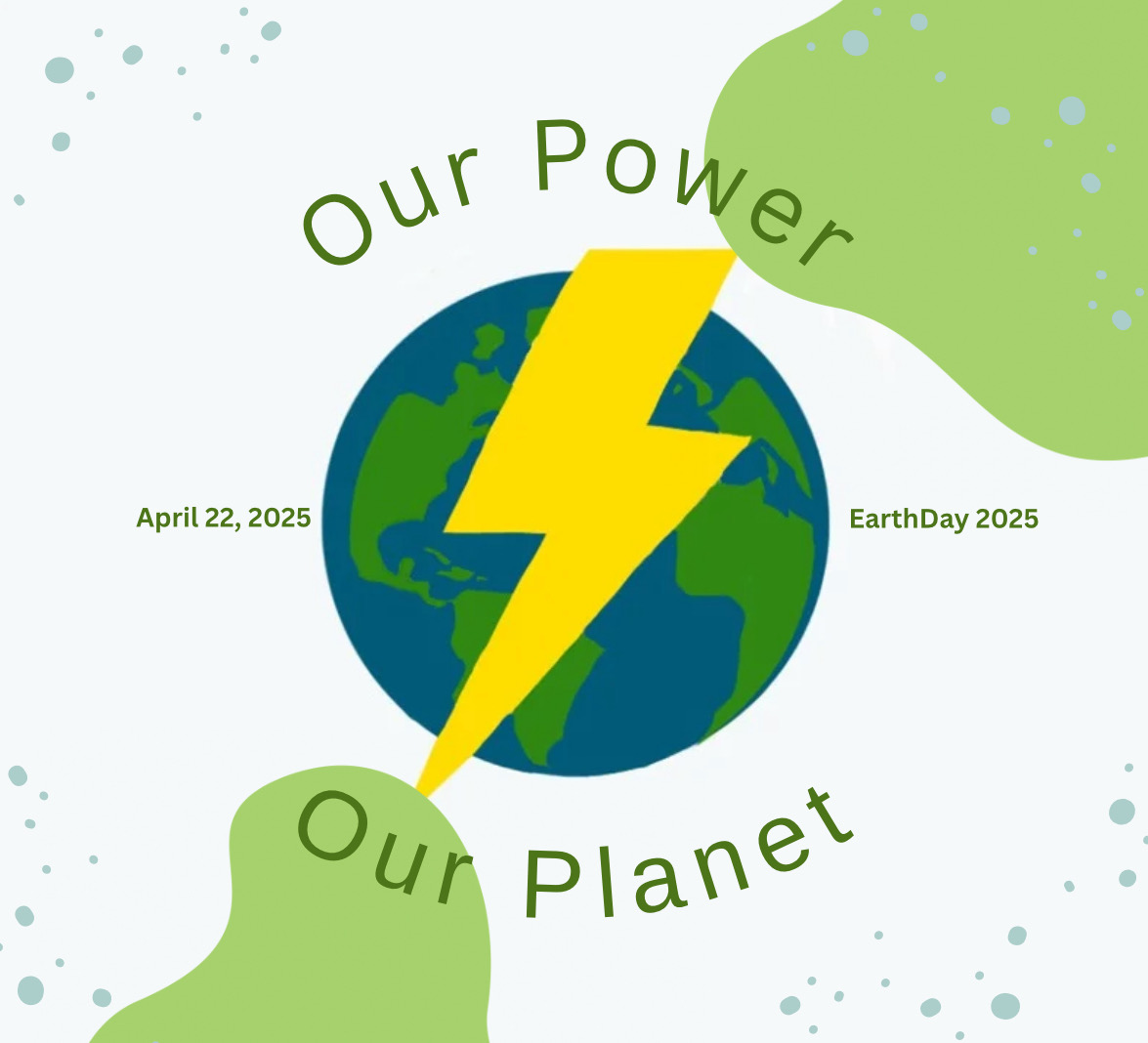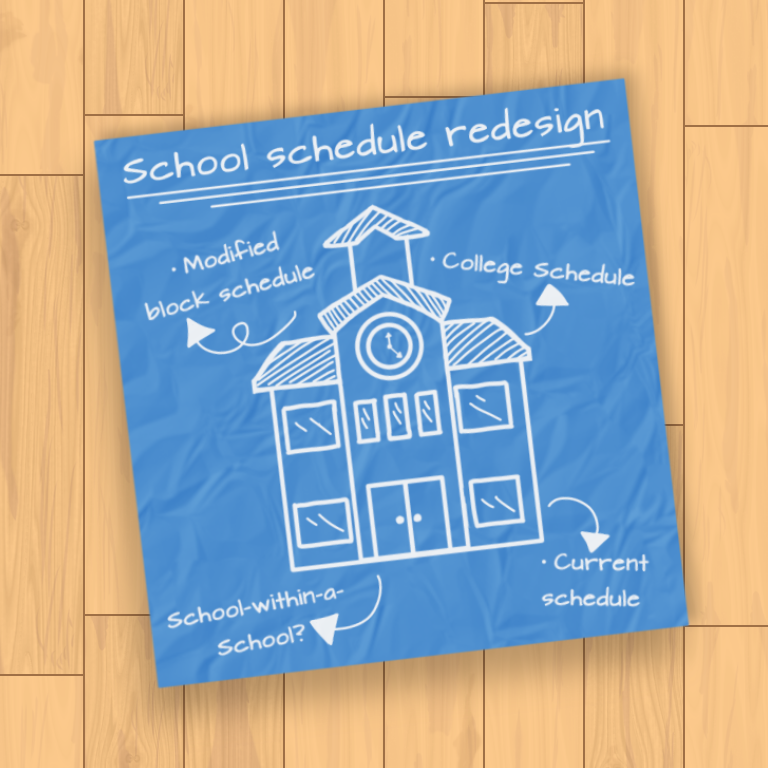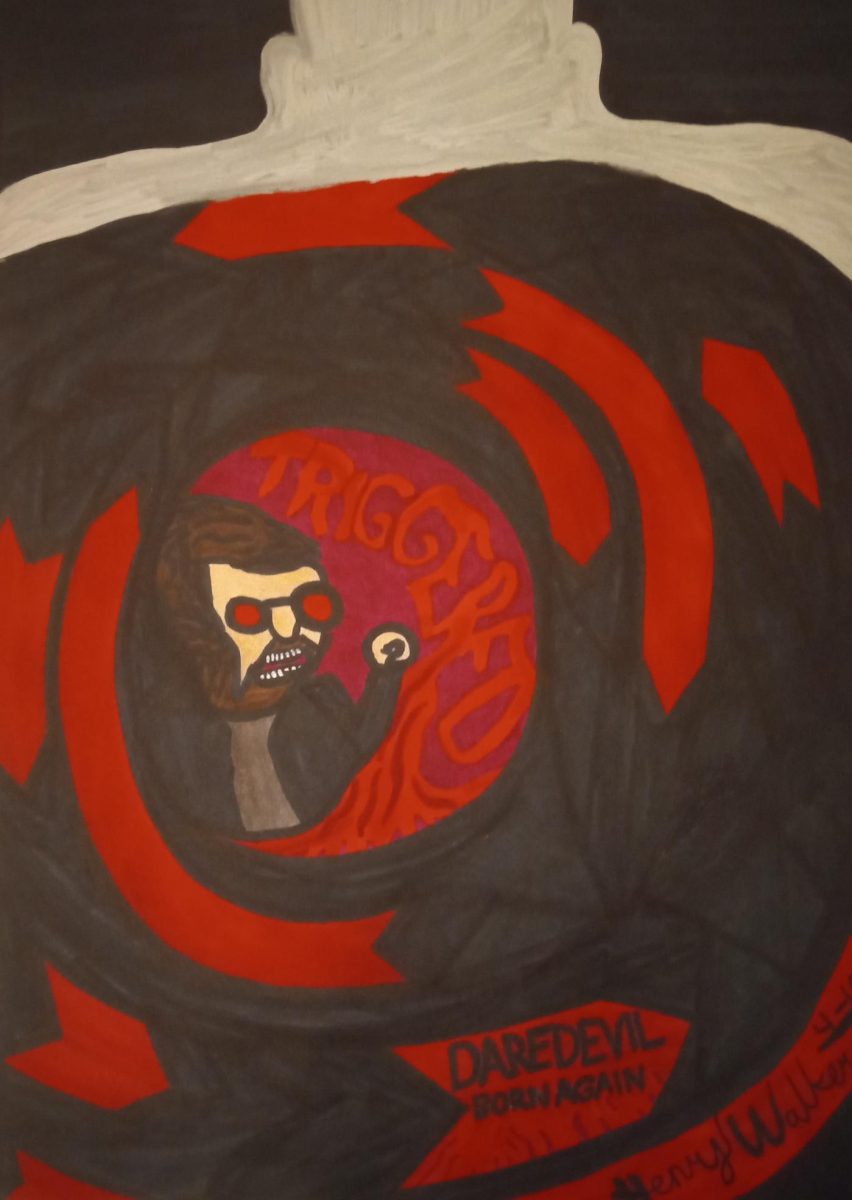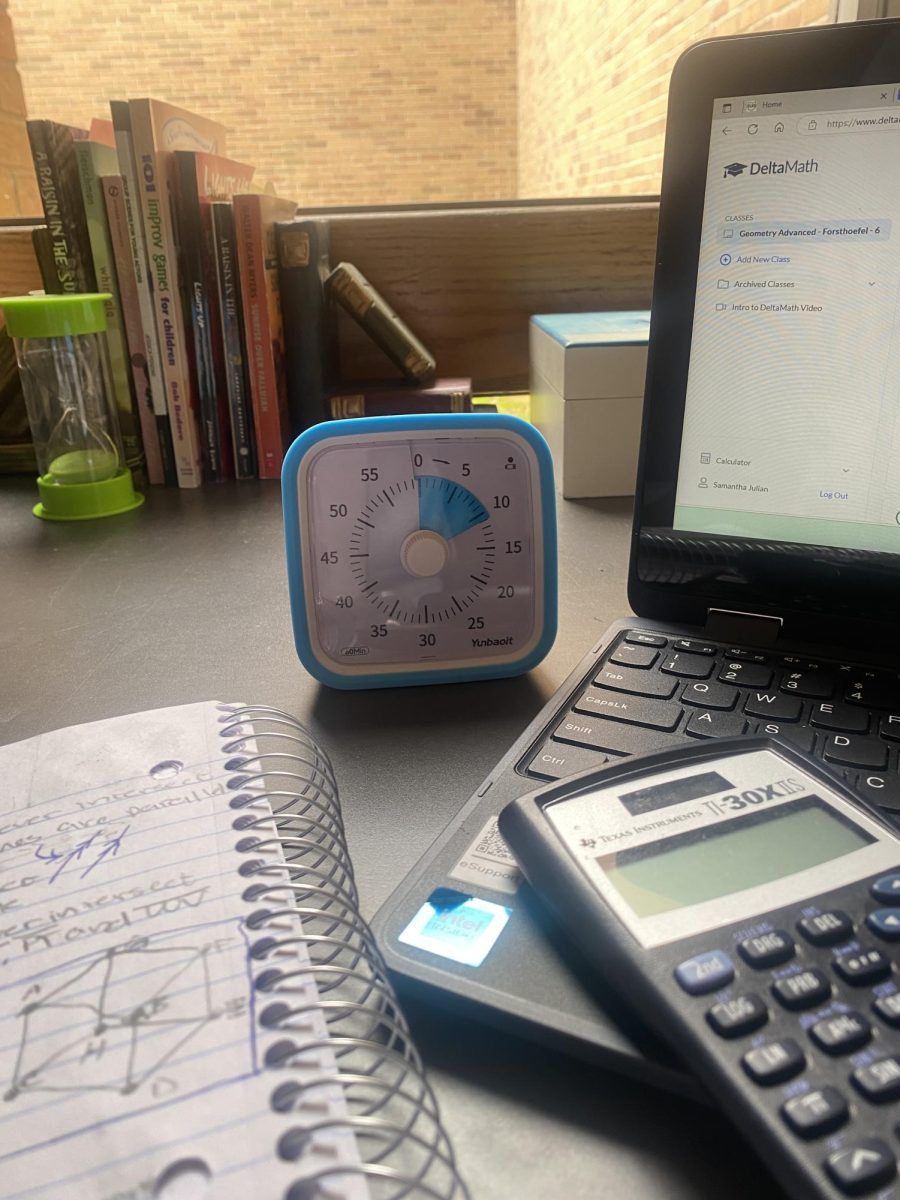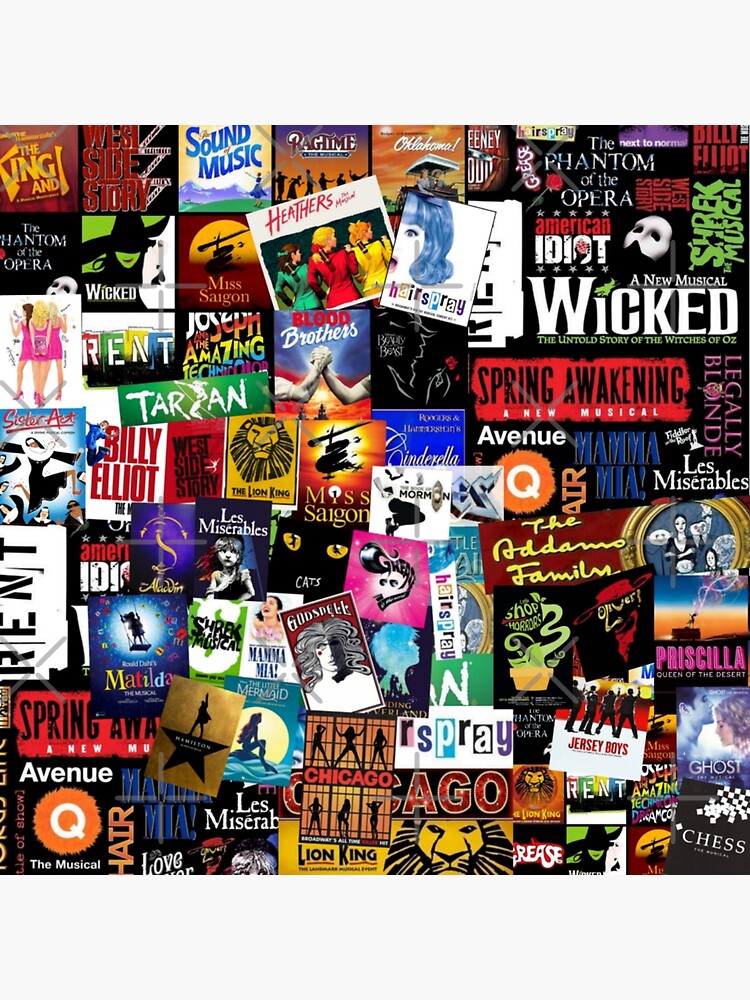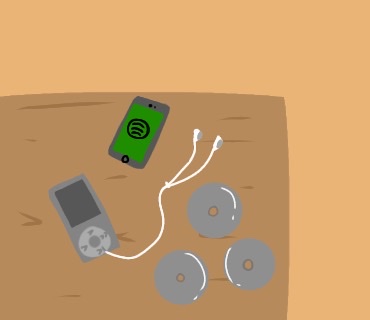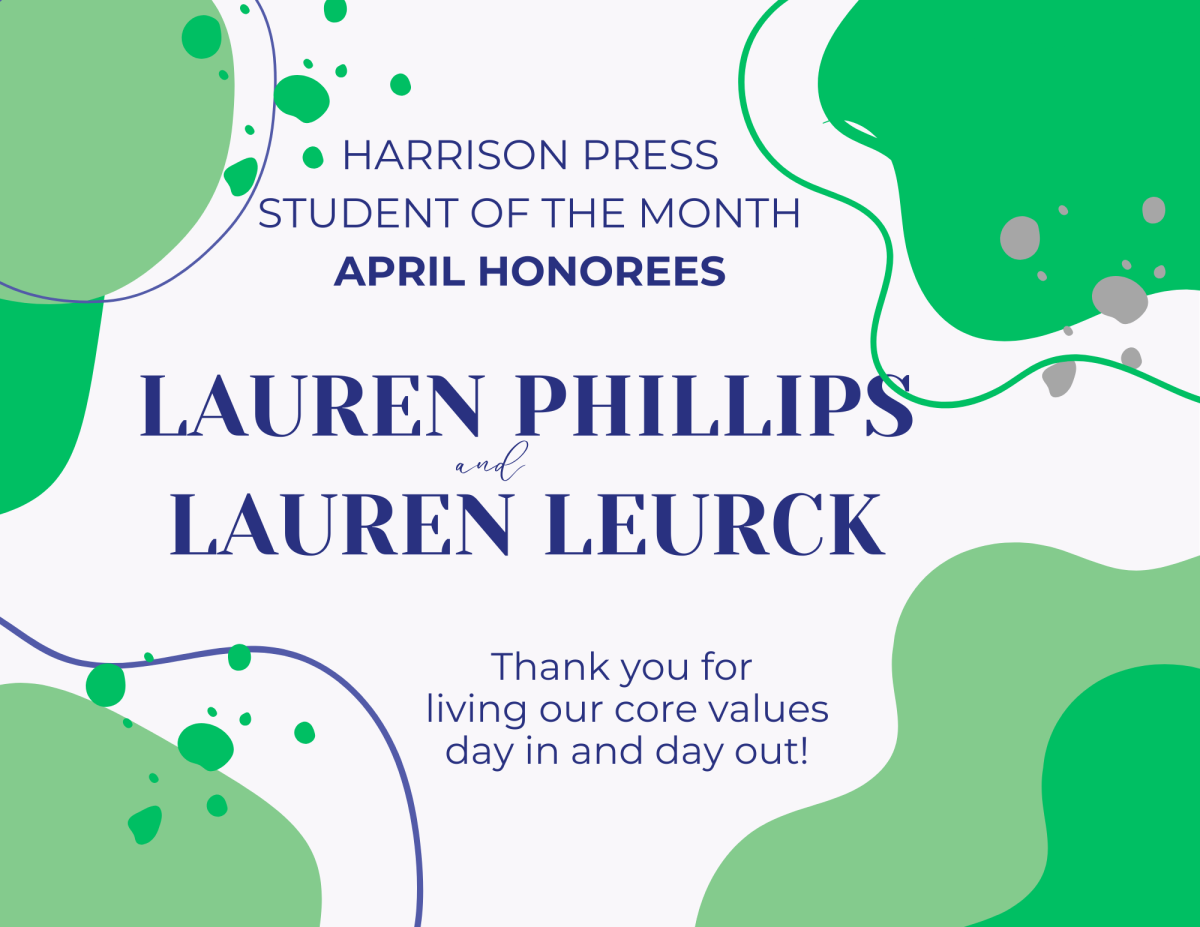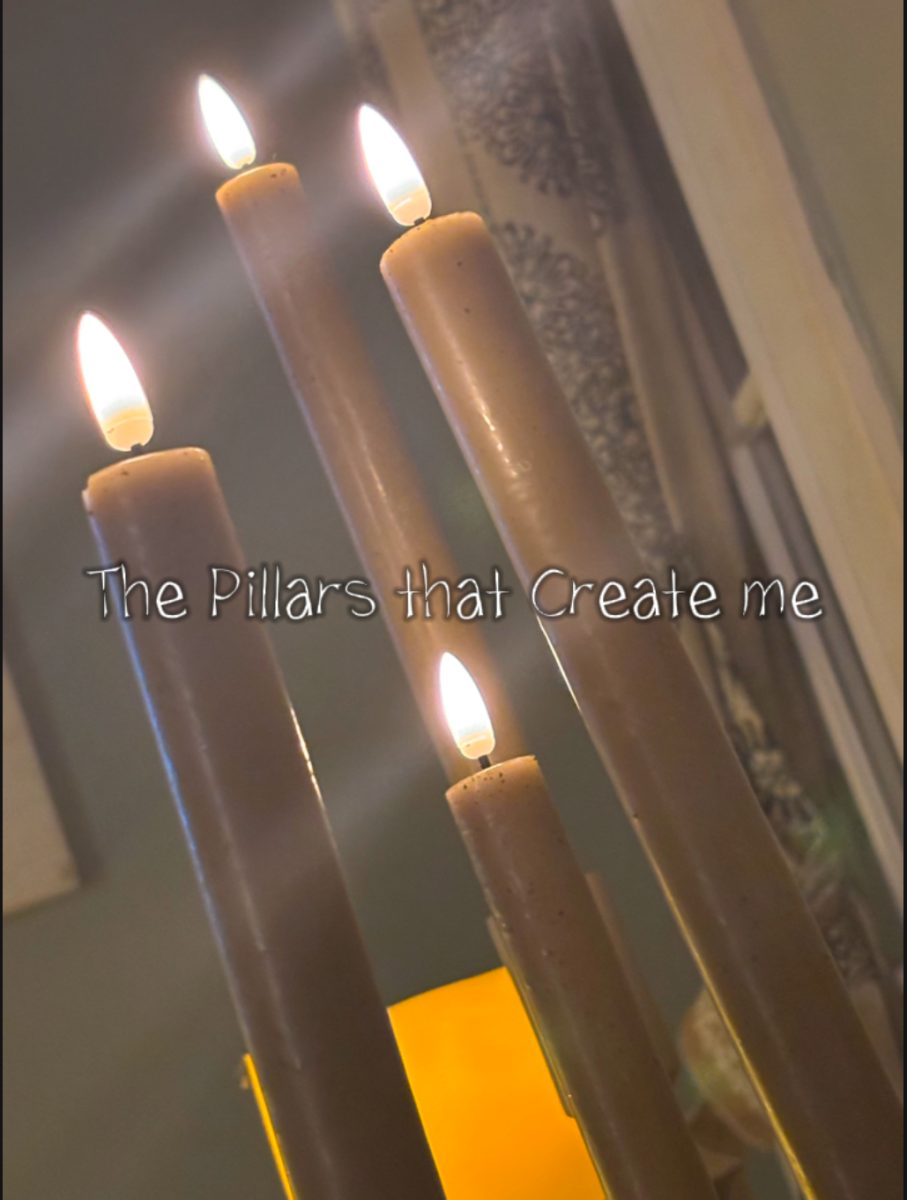If you take a look around you, everyone seems to be in a relationship. Whether it’s a couple in the hallway on your way to class or just the everyday media we consume through TV, movies, music, and social media, relationships surround us and have a deemed importance in society as we know it. Why is it that we seem to be a culture obsessed with the idea of love and relationships?
Well, we can look at it from multiple standpoints. We can look at it through a scientific lens: Harvard Medical School talks about how being love-struck can release high levels of dopamine, which causes people to be happier.
We can also look at this through a social and emotional lens. We as humans aren’t meant to be alone; we’re made to be sociable and be with other people, and being in a relationship helps us to feel more connected with another human being. But why is it that so many people feel pressured that this connection has to come from a romantic relationship rather than just friendships? Many people feel a need or pressure to be in a relationship because they feel like they are being left out if they stay single. But despite feeling this way, this really isn’t the case at all! You can live an equally fulfilling life whether or not you choose to be in a relationship. But, if you do choose to be in a relationship, there are many factors that go into keeping a healthy relationship for both you and your partner.
I sent out a survey to each grade level asking them a series of questions on relationships and got 129 anonymous responses. Are high school relationships healthy? On a scale from 1-5 (with 1 being strongly disagree and 5 being strongly agree) participants had an average of 2.93 when asked to respond to the statement, “high school relationships are typically healthy.” In addition, 47.3% of people put a 3 on the 1-5 scale whereas only 5.4% responded with a 5. 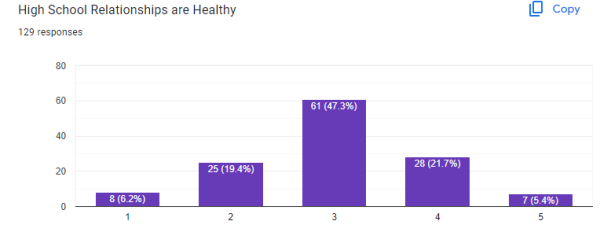 In addition, when asked what makes a healthy relationship, over 50% of participants mentioned communication in their response, with trust and honesty being the second and third most mentioned answers. Communication is a necessity in any relationship, whether romantic or not. Without communication, there’s a higher likelihood of misunderstanding or upsetting the other person. With open communication, you can often see your partner’s perspective and viewpoint, as well as just making your partner seen and heard and valued. It’s simply unfair to the other person to not communicate with them, causing them to worry, feel ignored, etc. Trust and honesty are equally as important because while you should love spending time with your significant other, you cannot be completely codependent. You have to still have a sense of self with or without that person, and give them that same space. This requires trust and honesty throughout a relationship so each person feels comfortable as their own person, and as a couple.
In addition, when asked what makes a healthy relationship, over 50% of participants mentioned communication in their response, with trust and honesty being the second and third most mentioned answers. Communication is a necessity in any relationship, whether romantic or not. Without communication, there’s a higher likelihood of misunderstanding or upsetting the other person. With open communication, you can often see your partner’s perspective and viewpoint, as well as just making your partner seen and heard and valued. It’s simply unfair to the other person to not communicate with them, causing them to worry, feel ignored, etc. Trust and honesty are equally as important because while you should love spending time with your significant other, you cannot be completely codependent. You have to still have a sense of self with or without that person, and give them that same space. This requires trust and honesty throughout a relationship so each person feels comfortable as their own person, and as a couple.
On the opposite of this, we also see many factors of unhealthy relationships. On a scale from 1-5 (with 1 being strongly disagree and 5 being strongly agree) participants had an average of 3.14 when asked to respond to the statement, “high school relationships are typically unhealthy.” 45.7% of students responded with a 3 on this 1-5 scale, whereas only 5.4% responded with a 1.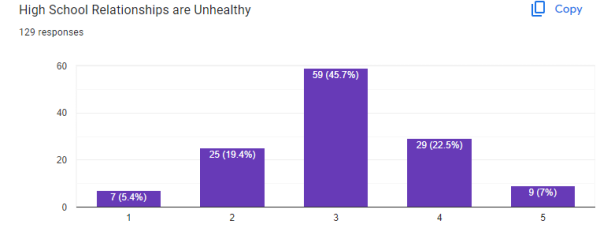 The results between these two questions are very similar, with the unhealthy relationships graph getting slightly higher results on average. When asked what characteristics make a toxic relationship, the idea of being controlling was the most mentioned response, with lying as the second most frequent response. Being overly controlling isn’t healthy for a relationship as while yes you are in a relationship, you are still two separate people. You’re allowed to have different interests, and even different friends, this ultimately roots back to communication and trust. Just simple statements like, “Hey! I’m going to hang out with xyz now I’m not going to be on my phone for a bit” can be super helpful and help your partner to not worry or feel left out. Forcing a partner to only hang out with you or abandon certain interests can make a relationship very toxic and lead to pent up resentment towards your partner. Obviously, if someone has a friend or is doing something that is unsafe, that can absolutely warrant a conversation. This doesn’t come without exceptions.
The results between these two questions are very similar, with the unhealthy relationships graph getting slightly higher results on average. When asked what characteristics make a toxic relationship, the idea of being controlling was the most mentioned response, with lying as the second most frequent response. Being overly controlling isn’t healthy for a relationship as while yes you are in a relationship, you are still two separate people. You’re allowed to have different interests, and even different friends, this ultimately roots back to communication and trust. Just simple statements like, “Hey! I’m going to hang out with xyz now I’m not going to be on my phone for a bit” can be super helpful and help your partner to not worry or feel left out. Forcing a partner to only hang out with you or abandon certain interests can make a relationship very toxic and lead to pent up resentment towards your partner. Obviously, if someone has a friend or is doing something that is unsafe, that can absolutely warrant a conversation. This doesn’t come without exceptions.
Now that we’ve overviewed some of the healthy and unhealthy relationship aspects, how do we point out these red flags? And when do you determine if a relationship is worth leaving, or if it just needs a conversation to talk it out and pivot? One of the easiest signs of a relationship you should get out of is an abusive one. No matter what, abuse is inexcusable and if you are suffering any kind of physical, mental, and/or emotional abuse from your partner please do what you can to get out of that relationship. If someone truly loved you, they would never do that. Please don’t let whatever idea of love you feel in a relationship shadow that, and we have councilors who would love to help you through this hard time. Now with that being said, there are road bumps in every relationship, and it is very likely at some point you will have an argument with your partner and that’s ok! You’re people, and we’re all going to have our differences. The most important part is you calmly talk through these disagreements and find a way to compromise to create something that makes both people happy, or at least content. Sometimes, these arguments can grow to the point of no longer wanting to be together, especially if the issue continues to persist, and that’s ok! Sometimes relationships are just not meant to be, we’re just in high school and there will be more opportunities that come your way if you discover someone isn’t the right person for you.
So, if you have decided you need to break up with your partner, or if you get broken up with, what do you do now? Closure is a very important part of breakups and without it, a long drawn-out process can occur of continually being hurt or hurting your ex throughout the time period after. Many websites recommend taking steps towards closure so you can better your overall wellbeing, as well as finding what to change for any future relationships you may have. However, actually getting closure is a lot more difficult than it may sound. Some tips to help have closure during a time of breakup is to limit communication with your ex, as well as giving yourself the space to feel your emotions, and talking to trusted friends about your feelings. This gives you the space to feel and eventually heal from the relationship, but there is no exact timeline for this, and that’s ok!

